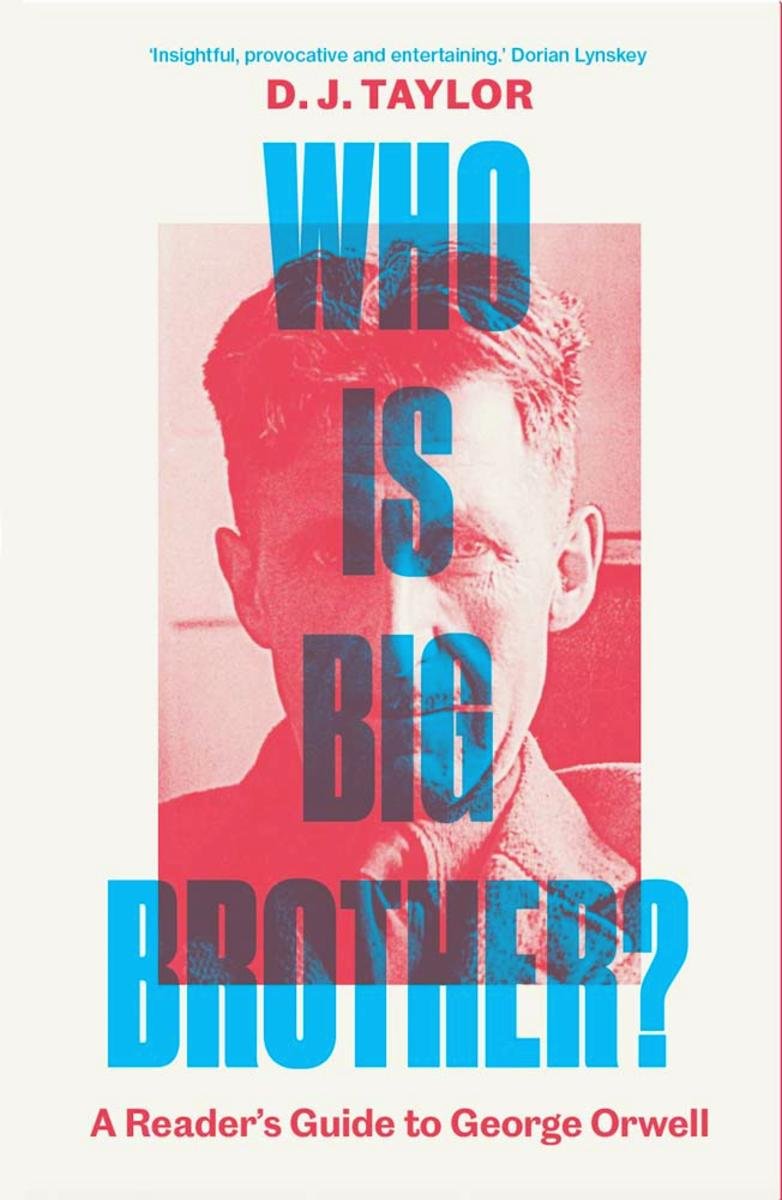Orwell’s failure
/I’ve almost finished reading George Orwell biographer DJ Taylor’s new guide to Orwell’s work, Who is Big Brother? It’s been an excellent short read so far, capably tracking the changes in Orwell’s life, views, and writings and insightfully linking them to each other as well as judging the man’s character fairly but not uncritically.
Of special interest to me, considering the way Orwell’s dystopian novel is so often compared to Aldous Huxley’s, was a line Taylor quotes from Orwell’s review of Brave New World. Faulting Huxley for his overemphasis on shameless hedonism in the society of Brave New World, Orwell asserted that “A ruling class has got to have a strict morality, a quasi-religious belief in itself, a mystique.”
This comment made sense of an aspect of Nineteen Eighty-Four that I’ve puzzled over since first reading it in college twenty-something years ago. Reading CS Lewis’s 1954 review of that novel a few years later focused and sharpened that puzzlement. Here’s Lewis on what he regards as the biggest flaw in Orwell’s dystopia:
In the nightmare State of 1984 the rulers devote a great deal of time—which means that the author and readers also have to devote a great deal of time—to a curious kind of anti-sexual propaganda. Indeed the amours of the hero and heroine seem to be at least as much a gesture of protest against that propaganda as a natural outcome of affection or appetite.
Now it is, no doubt, possible that the masters of a totalitarian State might have a bee in their bonnets about sex as about anything else; and, if so, that bee, like all their bees, would sting. But we are shown nothing in the particular tyranny Orwell has depicted which would make this particular bee at all probable. Certain outlooks and attitudes which at times introduced this bee into the Nazi bonnet are not shown at work here.* Worse still, its buzzing presence in the book raises questions in all our minds which have really no very close connection with the main theme and are all the more distracting for being, in themselves, of interest.
Lewis, in a rare moment of Bulverism for him, chalks this up to Orwell’s coming of age in the “anti-puritanism” of the DH Lawrence era. Maybe. But Lewis is right that the sexual repression of Big Brother’s state does not mesh organically with everything else—the state-mandated calisthenics, the brainwashed children, the mass surveillance, and most especially the manipulation of language.** Why would Big Brother care who’s doing it to whom and in what way as long as neither party engages in wrongthink?***
He wouldn’t. What Orwell failed to see is that the “strict morality” required of a tyrannical ruling clique need not be sexually traditionalist. It could indeed be the opposite, granting total sexual license but fastidiously and ruthlessly policing the terminology surrounding it, or by concentrating on some other occasion of sin—the accused’s carbon footprint, perhaps, or how much privilege they have, or what kind of ancestral sins they owe amends for. “[T]hough Brave New World was a brilliant caricature of the present (the present of 1930),” Orwell wrote, “it probably casts no light on the future.” On the contrary, George.
But to return to the point of comparison between Huxley and Orwell, a tyranny is, in fact, often better served by an out-of-control libido, which more than just about any other appetite has the power to distract and enervate. This is what Huxley saw that Orwell could or would not.
I should have more to say about Who is Big Brother? in my spring reading list later this month. In the meantime, check out Theodore Dalrymple’s review at Law & Liberty, which is what convinced me to read the book.
* “At times” is the right way to address this. The Nazis were not much concerned about sexual morality beyond guarding racial boundaries. Look into the private lives of Ernst Röhm, Reinhard Heydrich, Heinrich Himmler, and especially Joseph Goebbels sometime.
** The Soviet-style manipulation of language is, I think, the real point of Nineteen Eighty-Four, but a point easily lost among the book’s other terrifying visions. Cf. Fahrenheit 451, which Bradbury intended as a critique of TV rather than censorship.
*** Combining licentious sexual behavior with mass surveillance is also a useful source for kompromat, something the Soviets knew and that Orwell surely must have as well.





